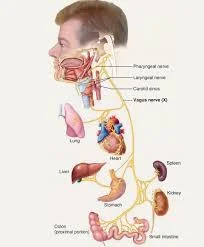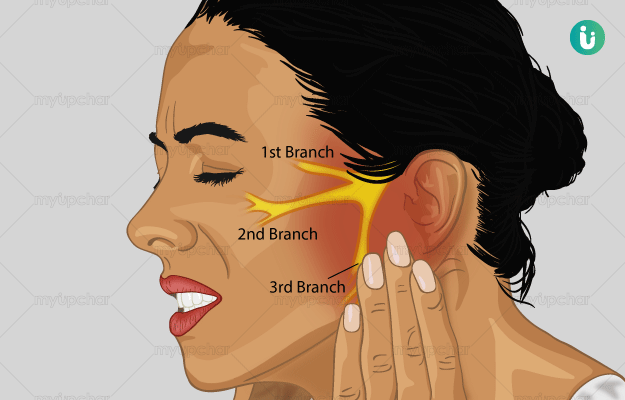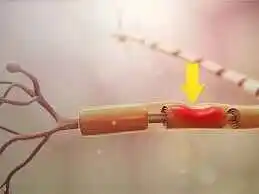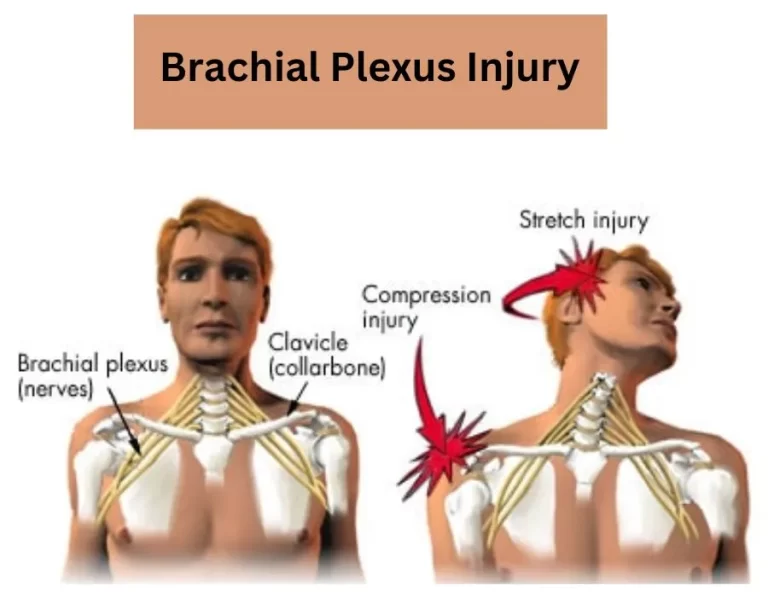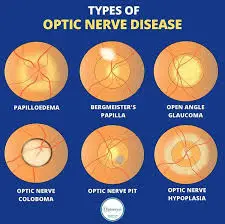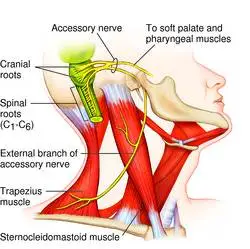Vagus Nerve Dysfunction
Vagus nerve dysfunction may result from the vagus nerve’s inability to properly regulate several physiological functions. The vagus nerves transmit signals to your heart, brain, and digestive system. Your parasympathetic nervous system depends on it.
Food not passing through your intestines, or gastroparesis can be caused by vagus nerve damage. Some people with vasovagal syncope faint because of low blood pressure. Depression and epilepsy can be treated with vagus nerve stimulation (VNS).
What is the Vagus Nerve?
- The tenth of the twelve cranial nerves are the vagus nerves. Another name for the vagus nerve is cranial nerve X, which is the Roman letter for 10.
- The parasympathetic nervous system contains some of the most important nerves, including the vagus nerve, also sometimes called the vagal nerve. Certain bodily processes, including digestion, heart rate, and immune system, are managed by this system. Because they are involuntary, you are unable to consciously regulate them.
- Your parasympathetic nervous system is made up of 75% of nerve fibers found in your left and right vagal nerves. These fibers transmit information between your heart, brain, and digestive tract.
Anatomy of the Vagus Nerve
Within the human body, the most lengthy nerve is the vagus nerve, which extends from the brain to the large intestine. The vagus nerves on the left and right sides of your body, respectively, transmit sensory data to those sides. The Latin term for wandering is “vagus.” Your body’s vagal nerves travel in a complex way. From your lower brainstem, they emerge from the medulla oblongata. Your medulla oblongata is where they exit your lower brainstem. The nerves then pass through or create contact with your:
- The region of the neck where the jugular vein and carotid artery meet.
- Thorax, or chest.
- Heart.
- Lungs.
- Abdomen and intestines.
Branches Of The Vagas Nerve
The vagus trunk is made up of the vagus nerves located on both your left and right sides. The point where your esophagus enters your abdominal cavity (belly) is where they join at the esophageal hiatus. The anterior (front) and posterior (back) gastric nerves that travel to your abdomen are part of the vagal trunk.
The branches of your vagal nerve are as follows:
- The inferior ganglion branch delivers muscle and nerve supply to your throat (pharynx) and voice box (larynx).
- Branch of the superior ganglion that supplies your spine and ears with nerves.
- Branch of the vagus nerve that supplies the heart, lungs, and esophagus (the tube that connects your mouth and stomach) with nerves.
Function of the Vagus Nerve
Your body’s neurological system consists of the vagal nerves. They are essential for the following involuntary sensory and motor (movement) processes:
- Digestion.
- Respiration (breathing), blood pressure, and heart rate.
- Immunological reactions.
- Emotion.
- Production of mucus and saliva.
- Sensations in the muscles and skin.
- Conversation.
- Taste.
- Discharge of urine.
Here are three main effects of the vagus nerve on the body and general health.
Digestion
- When the vagus nerve notices changes in the gut flora during meal digestion, it sends a message to the brain. The brain instantly triggers the appropriate digestive reaction when the vagus nerve is operating at its peak.
- For instance, the vagus nerve notifies the brain when you consume inflammatory foods like gluten or dairy, and the immune system is subsequently notified by the brain to begin an inflammatory reaction. That’s the same as asking the fire department to put out a fire.
- This signal may be weak when the vagus nerve isn’t working properly, which could prevent the brain from receiving crucial information. An inflammatory response that isn’t appropriately reported to the brain via the vagus nerve can become chronic and cause several different health problems.
Breathing
The vagus nerve branches that are found in the lung cavity control breathing. They maintain the rhythmic movements of the rib cage and the diaphragm muscle.
Stress and Mental Health
Additionally, the vagus nerve affects mental wellness. Cortisol is released as a result of the stress reaction, which the vagus nerve regulates. When levels of cortisol are raised, the vagus nerve tells the brain to release endorphins and serotonin, which prevents the stress reaction.
Blood Pressure and Heart Rate
The vagus nerve not only communicates with the stomach but also with the brain to control blood pressure and heart rhythm. As was previously established, stress causes your brain to cause the adrenal glands to release cortisol. Your blood pressure and heart rate go up when your cortisol levels are elevated. When the vagus nerve detects an increase, it signals the brain to relax by sending a vagal nerve signal. Serotonin subsequently gets released by the brain, lowering heart rate and blood pressure.
Additional involuntary actions
The vagus nerve transports motor and sensory fibers to the various tissues. This includes smooth muscles in the neck and intestine as well as skin receptors, which are nerve endings that enable you to feel sensations on your skin. Coughing, sneezing, salivation, swallowing, and vomiting are all regulated by these nerve branches.
What is the relation between Vagus Nerve and Parasympathetic Nervous System?
- The vagus nerve is one of the parasympathetic nervous system’s essential stimulants.By managing the body’s relaxation and digestive functions, it serves as a counterbalance to the sympathetic nervous system, which controls the body’s fight-or-flight reaction.
- Put another way, the vagus nerve triggers both the calming sensation you get from hugging a loved one and the hunch that something or someone isn’t quite right.
What is the Vagus Nerve Dysfunction?
- Vagus nerve dysfunction occurs when the vagus nerve cannot properly regulate various physiological processes.
- In general, the vagus nerve regulates blood pressure, heart rate, mood, and digestion. However, it also regulates speech, urination, salivation, muscle contraction, and other bodily functions.
- Sometimes stress, hormone imbalances, or inflammation cause the vagus nerve to overreact and become overstimulated. Vasovagal syncope, a sudden decrease in heart rate caused by this kind of vagus nerve malfunction, can induce symptoms including weariness, dizziness, blurred vision, sweat, or ringing in the ears.
What Causes the Vagus Nerve Dysfunction?
- As it happens, there are numerous physiological and psychological causes why vagus nerve dysfunction might occur.
- For instance, PTSD, unresolved trauma, emotional stress, and chronic stress can all affect vagus nerve function.
- Any circumstance that is more than your body can handle in terms of trauma is processed by the brain.
- It is possible that childhood experiences that you found difficult to handle as an adult were considered trauma at the time, which affected the function of your vagus nerve and other connected aspects of your well-being long into maturity.
What are the symptoms of Vagus Nerve Dysfunction?
You will find it difficult to enter your rest and digest phase if your vagus nerve becomes dysfunctional or weak. Anxiety and agitation may result from this, but there are many other indications that the vagus nerve is malfunctioning. They may consist of:
- Depression and anxiety.
- Aggressiveness.
- Struggle with making relationships.
- Difficulty in controlling one’s emotions.
- Lack of decision.
- Chronic inflammation.
- Difficulty to focus or mental confusion.
- Fainting or vertigo.
- Recurrent episodes of freeze, fear, or panic.
Disorders Associated with Vagus Nerve Dysfunction
The vagus nerve can also be the root cause of many medical ailments because it controls hormones, fertility, digestion, renal function, blood sugar, hunger, and other functions.
- Heart rate, either fast or slow.
- Blood pressure that is high or low.
- Heart conditions.
- Interstitial Bowel Disease and IBS.
- Constipation, nausea, and heartburn are indications of digestive issues.
- Weak immunological response.
- Chronic inflammation.
- Autoimmune disorders.
- Chronic exhaustion.
- Delayed emptying of the stomach, or gastroparesis.
- migraines and persistent headaches.
- Increase in weight without cause.
- Rheumatoid arthritis.
Speaking and Swallowing Problems
Speaking difficulties may result from damage to the vagus nerve branch, which supplies the larynx and voice box. An injury to the nerve supplying the throat results in difficulty swallowing. The most common way that these injuries happen is during throat surgery. Individuals may show symptoms and indicators listed below.
- Rough or scratchy voice.
- Changes in the pain sensation surrounding the injured area.
- Loss of the gag reflex (inability of the back of the throat to react to touch or stimulation).
Cardiovascular Dysfunction
Your heart rate, blood pressure, and the velocity with which your heart contracts can all change if damage occurs to the vagal nerve fibers that supply the heart and blood vessels.
Common signs of cardiovascular malfunction caused by damage to the vagal nerve include the following:
- Low blood pressure
- Abnormal heart rate, which could be more or less
- Episodes of fainting
Gastrointestinal Dysfunctional
Your digestive process may be affected by gastrointestinal tract vagal nerve damage. This may impact the release of digestive enzymes, paralyze smooth muscles, and eventually produce irregular bowel motions.
Among the signs of gastrointestinal dysfunction are
- Vomiting or Nausea.
- Delayed emptying of the stomach
- Discomfort or pain in the abdomen
- Bloating
- Gastric acid reflux
What are the risk factors for Vagus Nerve Dysfunction?
Vagus nerve dysfunction has been associated with certain risk factors, such as:
- Diabetes, autoimmune illnesses, and chronic inflammatory diseases are some of the medical problems.
- Cranial trauma or neck surgery
- Exposure to poisons like arsenic or lead
- Vitamin deficiencies.
- Inherited tendency.
What is the diagnosis of Vagus Nerve Dysfunction?
You can verify your vagus nerve function using a variety of assessment techniques. Usually, these diagnostic exams are required. If you believe you may have suffered damage to your vagus nerve.
These are a few typical techniques used to assess your vagus nerve:
Clinical Examination
Your doctor will examine you physically and go through your medical history as part of the examination.
- Gag Reflex: Your doctor may ask you to open your mouth and speak a word like “Aah” during the physical examination. They will feel your throat throughout this procedure to check your gag response. A healthy gag reflex and a tone in the smooth muscles surrounding your throat usually signify a normal vagus nerve response.
- The Valsalva Maneuver: Your healthcare professional may teach you to perform the Valsalva maneuver, which involves closing your lips, pinching your nose, and then forcibly exhaling. Ideally, this breathing method will activate the parasympathetic effects of your vagus nerve, which include lowering your heart rate, and many other things. However, care must be taken while applying this decision. It might cause sudden fluctuations in blood pressure, which is not something that certain people should do.
However, determining the cause of the vagus nerve dysfunction is just half of the challenge. To identify the underlying cause of any problems stopping your vagus nerve from operating at its peak, we provide a range of thorough lab testing and examinations. This frequently involves examining the autonomic response in addition to laboratory examinations for toxins, nutritional deficits, underlying infections, and other conditions.
Additional examinations: To rule out other issues, such as heart difficulties, digestive disorders, or neurological conditions, your doctor may occasionally order additional tests. These examinations could consist of:
- Radiography(x-rays)
- CT scans- computed tomography,
- MRI -magnetic resonance imaging
- Electromyography (EMG) and endoscopy
How is vagus nerve dysfunction managed and treated?
Medications
Your doctor may recommend medications for the following conditions, depending on your symptoms:
- Medication for digestive problems, such as controlling stomach acid, treating constipation, or treating nausea.
- Medication for cardiovascular problems: Blood pressure or heart rate control medications.
- Depression or anxiety: Studies indicate that certain medications, such as antidepressants, may affect vagus nerve activity, which may make them useful during specific situations.
Determine the underlying problems that are causing your vagus nerve dysfunction and work together to develop natural remedies for the vagus nerve. These are a few techniques that may be suggested.
- Vagus Nerve Stimulation: The vagus nerve can be stimulated and vagal tone can be improved with the use of devices known as vagus nerve stimulators. These devices produce brief electrical pulses. In practice, strategically employ neural treatment to activate the vagus nerve.
- Nutrition Therapy: By strengthening the myelin sheath that surrounds and covers the nerve fibers, vitamin and nutrient replenishment via food, supplements, and customized IV infusions can enhance vagus nerve function. Zinc is the subject of another vagus nerve-supporting theory.
- Supplements including nutraceuticals and botanicals: Certain supplements help treat the vagus nerve. Herbs with an unpleasant taste, such as bitters, can activate the vagus nerve by stimulating the brain. Herbs that improve heart health may also be helpful, as may adaptive agents that encourage a balanced stress response.
- The use of vibration therapy: Vibrations produced by breathing exercises, humming, gargling, chanting, and singing can all increase vagus nerve activity. Enhancing vagus nerve tone and achieving autonomic nervous system balance can also be achieved with vagus nerve stimulation using sound therapy.
- Manipulation: Similar to ligaments and joints, nerves can benefit from stimulation. By increasing vagus nerve function, chiropractic manipulation may enhance heart rate variability; on the other hand, massage has been demonstrated to increase vagal nerve function and lessen seizures in epilepsy patients.
- Cold Exposure: The vagus nerve can be stimulated by cold exposure, such as cryotherapy, cold showers, or swimming in cold water. It may enhance immune system performance, emotional stability, energy levels, mental clarity, and digestion.
Physical-therapy for the Vagus Nerve Dysfunction
The function and coordination of nerves can be improved by physical therapy. If you have damage to your vagus nerve due to a physical incident, this can be quite beneficial. What a physical therapist might suggest is as follows:
- Exercises: Certain workouts have been shown to enhance nerve function and coordination. These could be myofascial release procedures for the neck and upper back’s tight muscles, light stretches, or nervous system-stimulating balancing activities.
- Posture correction: Correcting your posture can help to relieve pressure on the vagus nerve and improve brain-to-body communication. Specifically, the hunched posture that results from spending all day in front of a computer has become a widespread issue. A physical therapist can assess your symmetry and body mechanics and provide you with exercises to help you with your posture. By assisting with better posture, a foam roller or SD Posture Correction Device can help relieve strain on the vagus nerve.
- Manual treatment: The vagus nerve can receive better blood flow and less tension from surrounding muscles when certain manual therapy techniques are used, such as a light massage to the neck and upper back.
- Electrical nerve stimulation (ENS): Electrical nerve stimulation (ENS) is a therapy that makes use of electrical pulses to activate the vagus nerve. Only very severe cases of vagus nerve dysfunction usually require this type of therapy.
- Other therapy: Making time for regular exercise, diaphragmatic breathing, breathing through alternative nostrils, and connecting with nature are some simple techniques you may do at home to enhance your vagus nerve. Simple everyday practices like laughing, smiling, and cultivating gratitude will improve your mental health and vagal nerve tone.
Physical therapy helps manage issues that may be related to vagus nerve dysfunction and improve overall nervous system function, even though it isn’t a direct cure for vagus nerve dysfunction.
How to Keep the Health of Your Vagus Nerve?
Healthy eating habits and lifestyle choices can help maintain the health of your vagus nerve.
Here are some examples of meals and lifestyle decisions that promote health:
- Frequent deep breathing exercises
- Yoga
- Walking is an example of a light to moderately strenuous physical activity.
- consumption of foods high in antioxidants, such as berries, green leafy vegetables, and salmon.
Summary
Within the cranial nerves that appear from the brain is the vagus nerve. It penetrates deeply into many organ systems and tissues. Numerous glands, smooth muscles, and organs get nerve fibers from their nerve branches. The involuntary processes that include respiration and digesting are managed by these nerve fibers. Large tumors or surgical procedures can compress the vagus nerve fibers. The vagus nerve can be injured or damaged, which can lead to numerous organ dysfunction. This may result in symptoms like bloating, vomiting, irregular heartbeat, and low blood pressure. In most cases, vagus nerve testing is beneficial if you believe you may have been injured in your vagus nerve.
FAQs
What symptoms indicate issues with the vagus nerve?
Bloating and soreness in the abdomen.
Gastritis reflux disease, sometimes known as acid reflux, is referred to as GERD.
Changes in heart rate, blood sugar, or blood pressure.
Swallowing difficulties or loss of gag reflex.
Fainting or vertigo.
Hoarseness, wheezing, or voice loss.
How is the vagus nerve’s functionality evaluated?
Using a soft cotton swab, the physician may tickle the back of the throat on both sides during this portion of the examination. This should make the person gag. If the patient does not gag, vagus nerve dysfunction could be the cause, indicating a potential issue with brainstem function.
What triggers the firing of the vagus nerve?
When the vagus nerve is stimulated, a set of unpleasant sensations known as the vagal response takes place. This reaction is frequently caused by certain stimuli, such as tension, discomfort, or anxiety. Sweating, ringing ears, nausea, and dizziness are some of the symptoms of the vagal response. It may cause you to faint in certain situations.
What is the vagus nerve’s diet?
An anti-inflammatory diet that generally supports overall health and wellness is probably beneficial to the health of the vagus nerve. A healthy diet that supports vagus nerve activity should limit trans fats and make sure you get enough salt and choline.
Is vagus nerve damage visible on an MRI?
Distal vagal lesions are characterized by a single vagus nerve paralysis without any oropharyngeal symptoms or indicators. Proximal or distal lesions can be diagnosed using magnetic resonance imaging (MRI) or computed tomography (CT).Is injury to the vagus nerve reparable?
Is injury to the vagus nerve reparable?
With the correct care, a vagus nerve injury caused by a transient illness, such as an infection, may recover without the need for medical intervention. On the other hand, more serious diseases or wounds could result in permanent harm.
References
- Professional, C. C. M. (n.d.-w). Vagus nerve. Cleveland Clinic. https://my.clevelandclinic.org/health/body/22279-vagus-nerve
- Seladi-Schulman, J., PhD. (2023, February 14). What is the Vagus Nerve? Healthline. https://www.healthline.com/human-body-maps/vagus-nerve#other-considerations
- Oseh, C. U., MD. (2024, January 28). A complete guide to your vagus nerve. Health. https://www.health.com/vagus-nerve-location-function-and-associated-diseases-8420313
- Vagus nerve dysfunction: its main causes and symptoms. (2023, April 13). Top Doctors. https://www.topdoctors.co.uk/medical-articles/vagus-nerve-dysfunction-what-is-it-and-what-are-the-main-symptoms
- Wellness, R. (2023, March 7). Vagus nerve dysfunction, symptoms, and healing. Rahav Wellness. https://rahavwellness.com/vagus-nerve-dysfunction/

